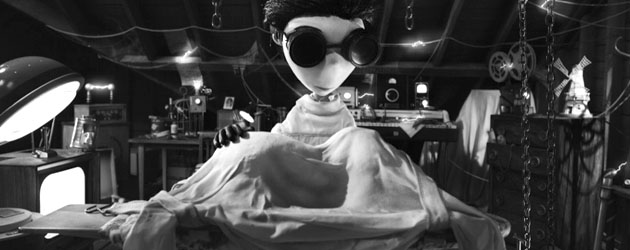Rick Heinrichs

AS: How do you crack the code? Do you put up a whole bunch of images on a wall?
RH: That’s part of it. I just need some alone time where I’m parsing through that stuff, collecting it. It’s this very important period of research where you’re trying to come up with something that is not the go-to, cliché answer. You arrive at it by doing the hard work of thought and study and research. Then you also start working with people who share a take on things and have a shared ethic of work. Most movies I’ve done are with John Dexter supervising art director, who’s fantastic. He’s actually working with Nigel Phelps right now on Invertigo.
And it’s really important to be able to draw. To do some of the work yourself whether it’s drawing a plan or an illustration. I do a very rough version of most of the illustrations I want people to work on. They’re shitty, they’re not rendered, but they say everything I want them to say and it gives the illustrators enough to get going. Excellent illustrators help because what you want to do is communicate to the director both the fundamental spirit as well as the particulars a given set.
Tremendously hard work is also part of it. I work many hours at it in a day. It’s an exhausting amount of taxes on your resources but this prep time, which seems to get shorter and shorter every time that we do it, is just so critical to the work that gets produced afterwards.
It’s also about how you manage your fear about the trails you’re going through. How far do you dare go down a path that might prove to be a dead-end? You play chicken with yourself a bit. There’s a mind-game aspect to it that you’ve got to keep aware of and stay on top of. There’s the art-intense focus that you’re in the middle of and there’s also the id and the ego –you’ve got to watch yourself too! Apart from that it’s easy -anyone can do it!
AS: How does playing chicken with yourself contribute to the process?
RH: You’re trying to come up with something fresh by following your intuition down a new path. But you’ve got to always stay above it slightly in order to manage the resources available to you, both your own and the other resources. You need to see if this is really going somewhere. Do I have enough to put this across to the director or is this something I need to abandon right now? Or have another option going?
AS: Do you see the movie industry leaving LA?
RH: Yes, and it’s just such a shame the industry is moving away. Because we have the best home for an industry. We’ve got the best facilities, we have the best trained craftspeople here. I do love working in London. They have excellent art department people there. They do have Pinewood and Shepperton and Leavesden and they have this wonderful tax break for the studios. However it’s not my home. It’s just a shame that we don’t have the same thing happening here. It probably would be considered corporate welfare here in California.
It’s a different world than the one I was coming up in. Much more international. We’re being asked not simply to design a film but literally being asked to design a production. A production footprint. You’ve got to solve all of these problems that are very economic-based problems. In the go-go eighties and nineties you didn’t have to think as heavily about that.